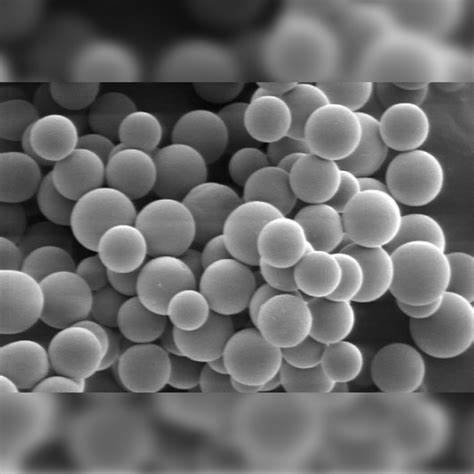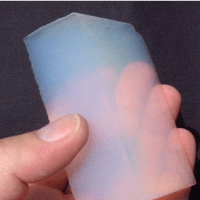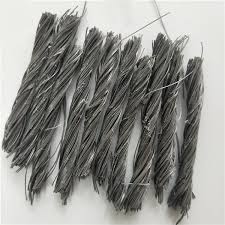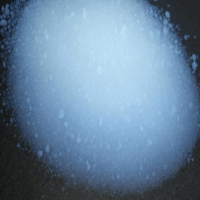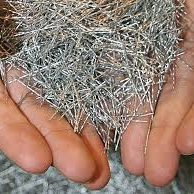Professional solutions on concrete addtives, Concrete Foaming Agent, Superplasticizer, CLC Blocks Additives, and foaming machine
(The 40 billion CNY project was built by China. The construction was very difficult, but it was amazing when completed.)
The role of PVA fiber in concrete bridge construction
PVA fiber, that is, polyvinyl alcohol fiber, plays a significant role in concrete bridge construction. It enhances the crack resistance of concrete, improves the strength and durability of concrete, increases the toughness and impact resistance of concrete, and improves waterproofing and impermeability ability and the effect of reducing self-weight.
Previously, Algeria had launched a large-scale infrastructure project worth 40 billion CNY. The construction of this project took a lot of work
At that time, the relevant departments in Algeria opened tenders to the outside world. When this project was announced, many countries had the idea of taking over the project. But in the end, they chose to give up after considering the difficulty of the project. Only China's infrastructure team dared to take on this project. And facts have also proven that the Chinese team's infrastructure capabilities are reliable.
After taking over this large-scale infrastructure project worth 40 billion, it took only a few years to advance the project to near completion. This is an achievement that many countries cannot match. So, what exactly is this project? Let's find out now.
1. Algeria wants to build an east-west highway
Algeria is a relatively backward country, and the country's overall economic development level is relatively low even on a global scale. However, Algeria has always wanted to develop its national economy.
However, relying solely on their internal strength cannot solve the problem, so Algeria needs external assistance, especially in the field of infrastructure. Many people must have heard the saying, "If you want to get rich, build roads first." You must establish a complete transportation system to boost the country's economy.
But only some countries can develop their transportation system. For countries like Algeria that need more money and talent, it is very difficult for them to build their transportation system, so what they can do is to combine these All projects are outsourced.
At the beginning of this century, the Algerian government proposed to build a traffic lifeline connecting the entire east-west direction of Algeria. This is the famous Algerian Highway Project. However, after this project was launched, only some countries dared to accept it because it was difficult to complete.
Algeria is African, with a large territory of 2.38 million square kilometers. However, a large territory is not good for Algeria because 2 million square kilometers of Algeria's 2.38 million territory are desert. These desert areas are vast and sparsely populated, with almost no population distribution. You will not live in the Sahara Desert as long as you are healthy. This makes building a transportation lifeline connecting Algeria's east-west and north-south directions difficult.
The construction team must find a way to prevent the road they are building from being submerged by the desert that moves back and forth at any time. Moreover, this work team must also carry out long-term construction in this desert environment, which may cause personal safety risks at any time. So when the Algerian government came up with this project and asked major companies for help, almost no countries were willing to take over.
Even though Algeria has invested a huge amount of money to build this highway and promised to provide huge financial support to companies willing to contract the project, few companies are still willing to undertake this project. Because they believe that it is almost impossible to complete the highway construction project, even if these companies reluctantly take on it, they will not need more reliable, skilled workers in their countries willing to build this highway.
Only Chinese companies have come up with an effective construction plan. At that time, a joint venture formed by China's CITIC and China Railway Construction proposed their construction plan, which the Algerian government favored. Chinese companies built the middle and western sections of the expressway. The total length of these two expressway sections exceeds 500 kilometers, and the cost is US$6.25 billion, which is 40 billion yuan in RMB.
Six Japanese companies contract the eastern section of the project. The total length of the expressway in the eastern section is 399 kilometers, and the total cost is US$5.2 billion. But in the end, only China could complete the construction of this project.
2. China's engineers and construction teams have demonstrated extremely high standards
After officially taking over the project, China's construction team engineers and construction workers showed their strong working ability, and it didn't take long for them to start building the project.
Northern Algeria is the intersection zone of desert climate and Mediterranean climate. The climate here is very complex, with temperatures above 30 degrees for a long time. Even on hot days, the temperature can soar to over 50 degrees. But once it comes to evening and night, the temperature here will drop again, and sometimes there will be inexplicable heavy rains. At night, the temperature may drop to below zero.
Therefore, if the construction team wants to build a highway here, they must endure the hot weather and biting cold, and the temperature difference between day and night is often more than 10 degrees. This is not an environment that normal people can live in. However, China's construction teams still have to carry out infrastructure construction under this pressure.
To ensure the project's progress as much as possible and ensure the safety of construction personnel, China's construction team deliberately adjusted the construction time. There is no construction during the hottest time, and employees will take shelter in specially built windproof and rainproof facilities at noon. But again, once the climate is suitable, these employees will come forward to carry out construction projects.
Moreover, during the project's construction, our engineers also discovered that Algeria has a very abundant rock called tuff. This kind of rock has the same hardness as the common rocks used to build highways and is more abundant. This eliminates the need to transport rocks for highway construction from other countries laboriously.
Therefore, China's engineering team has also set up several mines to develop and mine these tuffs on a large scale and use these rocks to lay highways. Thanks to the continuous efforts of the Chinese engineering team, we got this project in 2006. It only took four years, that is to say, in 2010, we completed the construction of the entire western section of the expressway.
By 2012, the construction project of the middle section was completed, and the central and western sections of the expressway undertaken by Chinese companies were fully completed. And facts have proven that the construction quality of this section of the project undertaken by Chinese companies is quite high. It can ensure long-term operation even in desert weather. But at this time, Algeria discovered a problem that made them regretful. That is, at the same time that this part of the project undertaken by China was completed, the project's progress contracted by Japanese companies could have been faster.
3. Projects undertaken by Japanese companies are progressing very slowly
The progress of this part of the project built by Japanese companies could be faster. After Japanese companies obtained the project construction rights, they sent many construction personnel to start the project.
In the beginning, these Japanese construction workers showed quite good technical skills. They did build a section of road that met the technical standards and could be opened to traffic for a long time. But by 2011, the situation was completely different. At that time, the highway projects undertaken by Chinese companies were almost completed, while only about 60% of the projects undertaken by Japan were completed.
At that time, only about 84 kilometers of roads were left from the Tunisian border, which caused a lot of headaches for the Japanese because of the difficulty of construction. If Chinese engineers faced this situation, they would definitely try their best to solve the technical difficulties and continue the construction project. However, after the Japanese construction team encountered difficulties, their first choice was to give up.
In 2011, Japanese companies abandoned the construction of this section of highway because the construction would be too difficult and the cost would be too high, which would cause them to lose money. Let this highway become a dead end. Moreover, the Japanese government directly ordered its construction team to leave the site without merely notifying the Algerian government. This resulted in the part of the highway built by the Japanese becoming an unfinished project, which caused the Algerian government a headache.
At that time, the Algerian government had already given construction funds to the Japanese. Still, the Japanese suddenly announced that they would stop building the road, making it impossible for the road, built for more than 800 kilometers, to be officially put into operation. The Algerian government could only start long-term exchanges and commercial negotiations with Japan, but the results were insignificant. Japan has refused to send people to complete the construction of this highway. Until 2017, this highway was still not fully open to traffic. Only this part of the road built by China can be partially opened to traffic. At this time, the Algerian government also fully understood that the Japanese could not be counted on, and it was impossible to wait for the Japanese to come back to build this road.
Therefore, after careful consideration, the Algerian government extended an olive branch to Chinese companies again, hoping to sign a renewal agreement with them. And Chinese companies have actually taken over the continuation project of this project. A few more years have passed, and by August 2023, we have completed the construction of the last 80-odd kilometers. This hard nut has been broken, and the road in Algeria has been truly completed.
When the highway was officially implemented, Algeria sent many high-level government officials to participate in the full completion ceremony. This highway project has also become one of the most important external business cards of China's infrastructure construction.
Supplier of PVA fiber
TRUNNANO is a supplier of PVA fiber (which is one of concrete additives) with over 12 years experience in nano-building energy conservation and nanotechnology development. It accepts payment via Credit Card, T/T, West Union and Paypal. Trunnano will ship the goods to customers overseas through FedEx, DHL, by air, or by sea. If you are looking for high quality concrete crack reducing admixture, please feel free to contact us and send an inquiry. (sales@cabr-concrete.com).
(The 40 billion CNY project was built by China. The construction was very difficult, but it was amazing when completed.)


